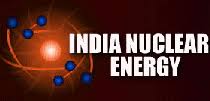Published on Tuesday July 19 2011 (AEST)

Business News-NEW DELHI, Tuesday
The Tumalapalli mine in Andhra Pradesh state could provide up to 150,000 tonnes of uranium, Srikumar Banerjee, secretary of the Department of Atomic Energy, told reporters after a four-year survey of the site was completed.
"It's confirmed that the mine has 49,000 tonnes of ore, and there are indications that the total quantity could be three times that amount," Banerjee was quoted as saying in The Times of India.
"If that be the case, it will become the largest uranium mine in the world," he said.
Previous estimates suggested that only about 15,000 tonnes of uranium would be produced at the mine, which is due to start operating by the end of the year.
But he warned that "it is not high-grade uranium, it is low-grade uranium. We have not found any high-grade uranium in India to match that found in Australia."
Major exporter Australia has so far rebuffed Indian requests for supplies of the heavy metal, which is refined into nuclear fuel, because the country has not signed the Nuclear Non-Proliferation Treaty.
The government has been seeking new supplies of uranium worldwide and has concluded supply deals with France, Kazakhstan and Russia among others.
"The new findings would only augment the indigenous supply of uranium. There would still be a significant gap. We would still have to import," Banerjee was quoted as saying by The Hindu newspaper.
Construction began on Monday of two new indigenously-designed 700-megawatt nuclear plants in the western state of Rajasthan, the government said in a statement.
India currently has 20 nuclear reactors generating 4,780 megawatts of power, plus seven reactors with a capacity of 5,300 megawatts under construction, it said.
New Delhi -- backed by the US -- won a special exemption in 2008 from the Nuclear Suppliers Group (NSG), which governs global nuclear trade, to allow it to buy reactors and fuel from overseas.
The country had been subject to an embargo since 1974 when it first conducted a nuclear weapons test.
Countries are normally required to have signed the nuclear non-proliferation treaty and open their reactors to international scrutiny before they can buy atomic technology and uranium.
Companies from France, Russia, the United States and Japan are competing for a slice of the $175 billion that India plans to spend on nuclear reactors.
Regular protests have been held by residents at Jaitapur on the west coast of India, where a huge six-reactor, 9,900-megawatt plant is scheduled to begin construction in 2013.
 Australian Uranium News - Research
Australian Uranium News - Research


No comments:
Post a Comment